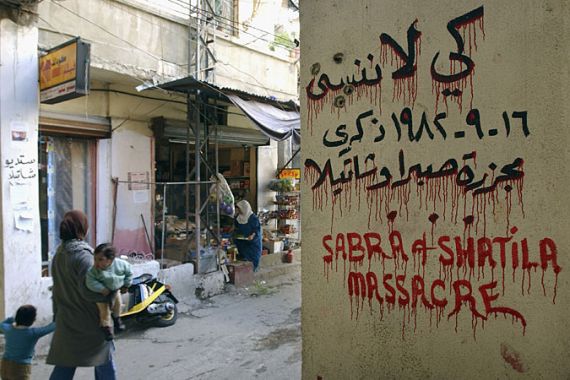
Gaza Hospital: Beirut
Three medics return to Beirut and recall events they saw from ‘Gaza Hospital’ during the Sabra and Shatila massacre.
Editor’s note: This film is no longer available online.
Filmmakers: Federico Schiavi and Marco Pasquini
Keep reading
list of 4 itemsFrance blames Azerbaijan for New Caledonia violence: Unpacking their spat
‘Hell on Earth’ as violence escalates in Sudan’s el-Fasher
South Korean military says North Korea test-fired ‘ballistic missiles’
Overlooking the Palestinian refugee camps of Sabra and Shatila, Beirut’s ‘Gaza Hospital’ witnessed the Lebanese civil war and the Israeli invasion first hand.
Most notably the hospital and its staff dealt with the bloody impact of the 72-hour massacre that took place there in 1982. Hundreds of civilians in the camps were killed by Israeli-backed Lebanese Christian militiamen.
The doctors and nurses received many injured people, treated the dying and dealt with the deathly toll.
Several years later, the camps endured siege and shelling by Shia Muslim militiamen in what became known as the ‘War of the Camps’.
After being damaged by the bombing, the hospital could no longer function, and it became a refugee shelter.
Some people who lost their loved ones still live in the partly-empty building. These days the operating theatres have become rubbish tips or have been converted into crude gyms, while wards have been turned into makeshift homes, densely-packed with residents.
Yusef Hamza Abu Maher, who was born in 1948, the year of the Nakba that marks the Palestinian exodus, was six months old when his family fled to Lebanon.
“After the ‘War of the Camps’ which began in 1985 and with the arrival of the Amal Movement, the hospital closed due to the destruction that happened between 1985 and 1987,” Maher recalls.
“Then the refugees came, Palestinians and others from different camps like Tell al-Zaatar, Nabatiyye, from Hayy al-Gharby, from Shatila, from al-Hursh, from Dbaye. They occupied this building, cleaned it, fixed it and settled here.”
Returning to Beirut after some 30 years, the international medical staff who worked at ‘Gaza Hospital’ at the time of the conflict – Dr Swee Chai Ang, Dr Aziza Khalidi, Nurse Eileen Seigel and others – recall those traumatic times.